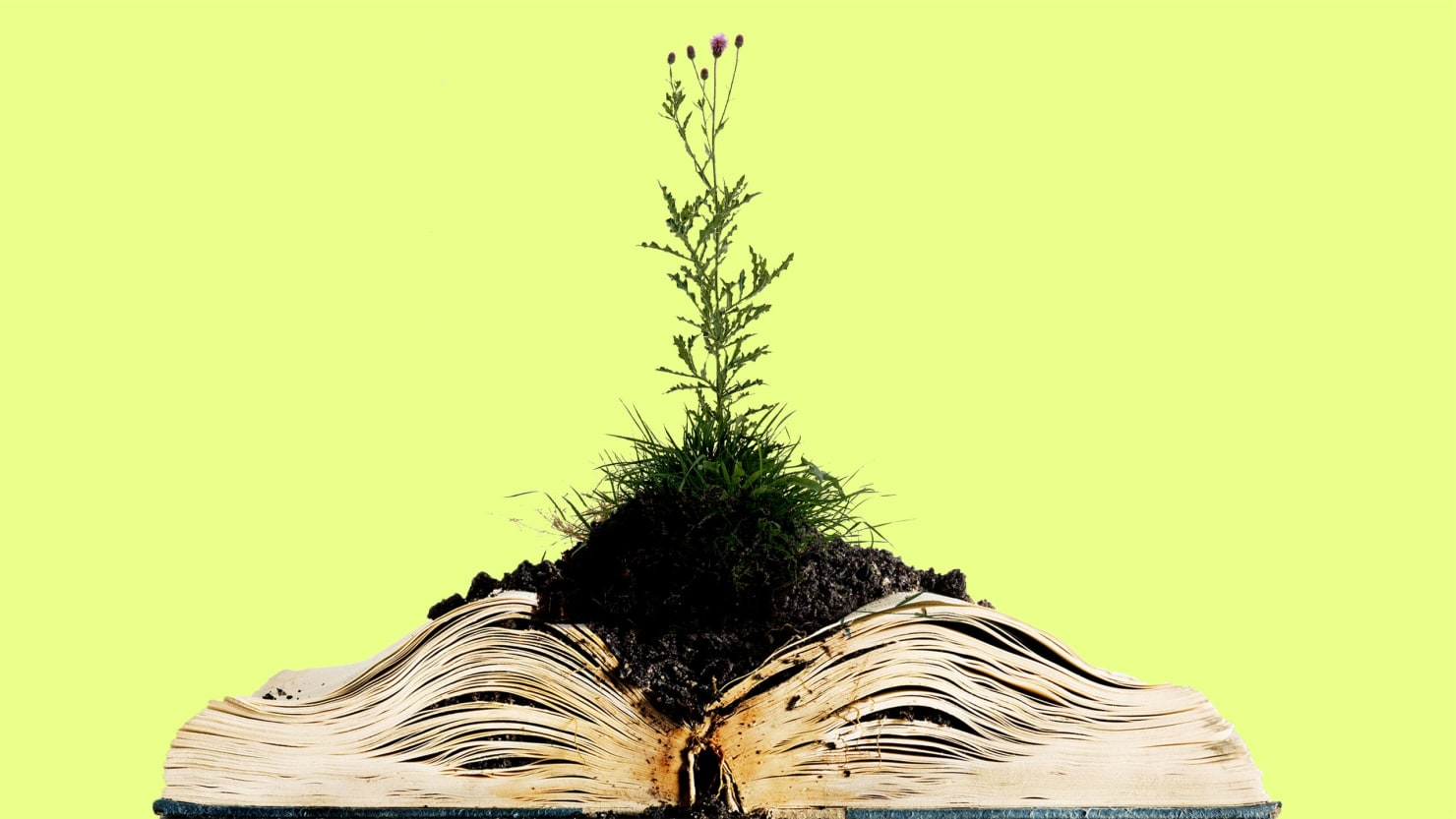A Weed Library Grows in Brooklyn

Don’t sneer at these enemy plants: Weeds may help feed, heal, and outfit us in the future.

Photo Illustration by Sarah Rogers/The Daily Beast
Despite the widespread presence of oil, mercury, lead, and other contaminants, the canal is riotous with plant life: evening primrose, lambs quarters, morning glory–or, as the rest of us would call them, weeds.
Percoco and Irons began NESL three years ago. As students of art and environmental science, each had independently been using weeds in their own work–for example, Percoco by creating an urban terrarium and Irons painting with watercolors derived from plants–before they met on a panel in 2015. Together, they decided to create a seed library, inspired in part by seed banks like the Svalbard Global Seed Vault, as well as community seed swaps where local gardeners meet seasonally to exchange agricultural and ornamental plants.
“We often ignore the hardiest and most abundant species among us.”
“We were interested in the gap between these models, and in species of plants that aren’t being stored and saved by such efforts,” Irons said. “As artists, gaps and omissions jump out at us as opportunities to experiment. So we created a small, nimble seed library that does deep time storage and season-by-season sharing and swapping. We decided to dedicate it to the overlooked, spontaneous, wild, and weedy plants that live alongside us in cities, and that are rapidly adapting to our changing epoch.”
The purpose of NESL’s work is not purely aesthetic or sentimental, but utilitarian too. Urban heat islands of concrete and asphalt, erratic hydration, and industrial pollution have made weeds more important than ever. Weeds may be uniquely suited to help us feed, heal, and outfit ourselves in the future.
“The conversation about climate change has turned a corner, from prevention and mitigation to adaptation and resilience in the face of change,” Percoco said. “As we move through the bottleneck of the sixth mass extinction, we are looking around and identifying our companion species who have the tenacity we need to survive this sea change.”
Weeds are tenacious, but useful as well. The petals of the Asiatic dayflower and the American pokeweed, which can be found in ditches and roadsides throughout the United States, can be used to create paints. The broadleaf plantain that grows around the world has anti-inflammatory properties, treating insect bites or sunburns when mashed and applied to the skin. Dandelion, clover, and purslane, familiar from neglected lawns everywhere, are all edible if grown in non-toxic environments.
“We decided to dedicate it to the overlooked, spontaneous, wild, and weedy plants that live alongside us in cities, and that are rapidly adapting to our changing epoch.”
— Ellie Irons, Next Epoch Seed Library
Since its founding, NESL has had a dozen projects advocating for weeds along these lines. From New Jersey to upstate New York, in art galleries, universities, and side streets, NESL has created site-specification installations, led walking tours, buried seeds in time capsules, hosted workshops, created curricula for study, and done more to help people understand the value of spontaneous urban plants.
Visitors to NESL’s website are encouraged to contribute by collecting seeds from local weeds and mailing them in. The seed library itself is mobile and distributed, currently being housed at the Sanctuary for Independent Media in Troy, New York, as well as in Percoco’s and Iron’s homes in Jersey City and Brooklyn, respectively.
The response to NESL’s work has been mixed. While most passersby are content to ignore weeds, Irons describes how the participants in NESL’s projects often walk away with a new appreciation for their environments. Constrained by the aesthetics that often define weeds, others remain unconvinced of their value. There’s a similar divide among experts in the field, with conservationists objecting to weeds as invasive species and botanists all but ignoring them in favor of studying plants in their “natural” habitats.
But like NESL’s audience members, even researchers are coming around.
“In recent years, fields like urban ecology and urban soil science have begun to come into their own,” Irons said. “The world is becoming more urban, both in terms of population and land use, and, importantly, cities provide a really interesting place to study the possible effects of climate change. Generally speaking, they tend to be hotter and have more extreme weather conditions, to suffer greater pollution, soil compaction, habitat fracturing, and flooding. This means that cities, and the plants and animals that dwell in them, are ‘living in the future,’ providing a model of how species might adapt to oncoming changes.”
It’s NESL’s hope that by better understanding these uncultivated urban plants, we’ll be more prepared for the future that awaits us. After all, if we can become as tenacious as weeds, we should be able to survive anything.
Next Epoch Seed Library will be exhibiting at Pierro Gallery in South Orange, New Jersey until October 13.
